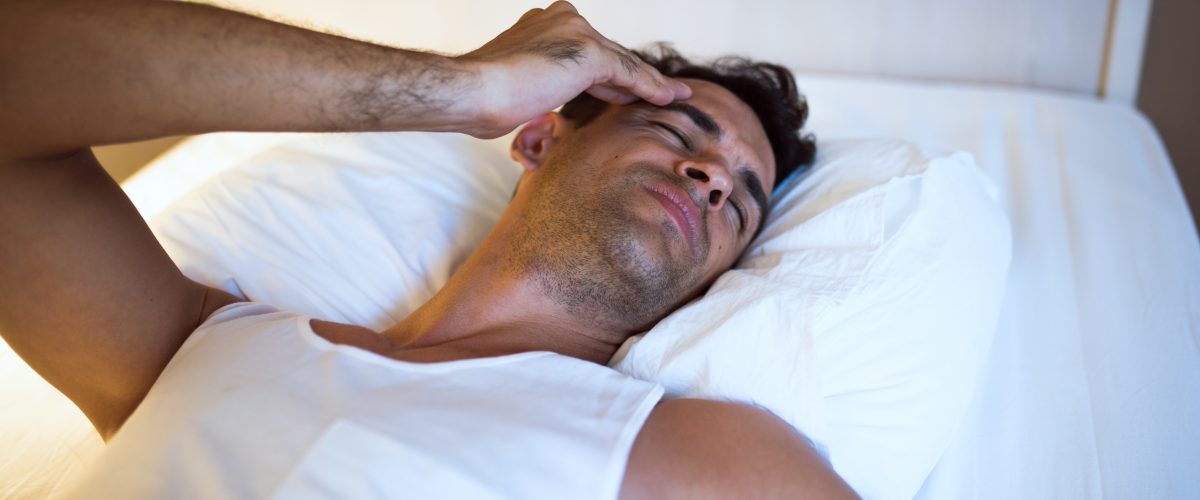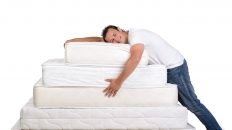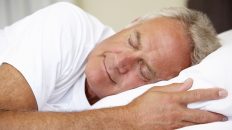By Virginia Gurley, MD, MPH
MB (Marc Braman, MD, MPH):
Our topic this session is “Sleep as Medicine for Pain.” Thank you for joining us, Dr. Gurley.
VG (Virginia Gurley, MD, MPH):
Thank you, Dr. Braman.
MB:
What is the relationship or connection between sleep and pain?
VG:
Well, there is a strong connection between pain and sleep – about 50% of people with insomnia have a chronic pain condition, and about 70% of people with a chronic pain condition also experience sleep difficulties.
MB:
It would seem obvious that if you are in pain, you wouldn’t sleep very well. Is that actually how it works?
VG:
Well, that’s what most of us assume, that pain makes it difficult to sleep, and while pain can interrupt sleep, more studies show that not enough sleep leads to increased pain. So, for example, studies looking at people with insomnia have found significantly increased risk for developing recurrent headaches, fibromyalgia and chronic musculoskeletal pain within the next 10 to 15 year period following the development of their insomnia.
MB:
Ok, so actually backwards of what we would expect.
VG:
Yes.
MB:
So there is a long-term effect of inadequate sleep and increased pain. What about short term effects or impact?
VG:
So, there’s also a short term effect. Exactly. So, the short-term effects of sleep disruption are similar to the long-term effects – just one night of poor sleep or short sleep leads to increased pain the next day in people with fibromyalgia, arthritis and depression, and even in healthy adults too. And the reverse has also been found – quality sleep leads to next day reduction in pain symptoms in people with pain conditions.
MB:
Do we know how this works? I mean, what is that is actually happening in the body and in the brain with sleep that affects pain?
VG:
Well, there’s still a lot to be learned about how sleep reduces pain sensitivity but it seems to be related to how sleep enhances the pleasure and reward system in our brains. So, dopamine is the major neurotransmitter, or brain chemical, that controls our sense of pleasure and reward. And, when we sleep less than 7 hours, we have fewer dopamine receptors in our brain, and that in turn reduces our experience of pleasure and positive mood and increases our sensitivity to pain.
MB:
Wow. So, in effect, more sleep equals more potential for pleasure because we have more receptor capacity?
VG:
Yes, and these studies have actually found that. They found that when we sleep 8 hours or more, we have more dopamine receptors along with more pleasure and positive mood, and less sensitivity to pain.
MB:
That actually sounds like good news to me, meaning we have control over things. So, in effect, the science is showing that we can use sleep as medicine for pain control and maybe even for pleasure optimization, which sounds like a pretty good side effect to me.
Thank you so much, Dr. Gurley.
VG:
Thank you, Dr. Braman.
The association of sleep and pain: an update and a path forward. Finan PH, Goodin BR, Smith MT. J Pain. 2013 Dec;14(12):1539-52. doi: 10.1016/j.jpain.2013.08.007. Review.
Sleep extension in sleepy individuals reduces pain sensitivity: new evidence regarding the complex, reciprocal relationship between sleep and pain. Doghramji K. Sleep. 2012 Dec 1;35(12):1587-8. doi: 10.5665/sleep.2220.
Pain sensitivity and recovery from mild chronic sleep loss. Roehrs TA, Harris E, Randall S, Roth T. Sleep. 2012 Dec 1;35(12):1667-72. doi: 10.5665/sleep.2240.
Evidence that sleep deprivation downregulates dopamine D2R in ventral striatum in the human brain. Volkow ND, Tomasi D, Wang GJ, Telang F, Fowler JS, Logan J, Benveniste H, Kim R, Thanos PK, Ferré S. J Neurosci. 2012 May 9;32(19):6711-7. doi: 10.1523/JNEUROSCI.0045-12.2012.





